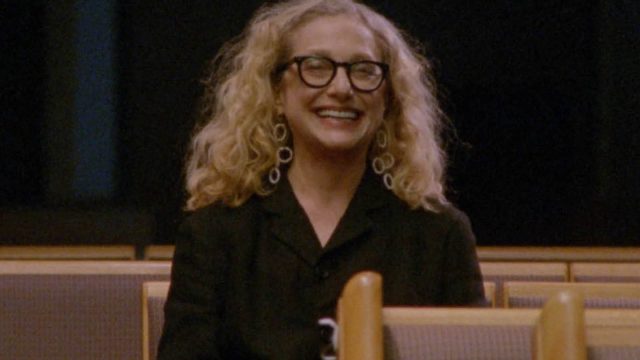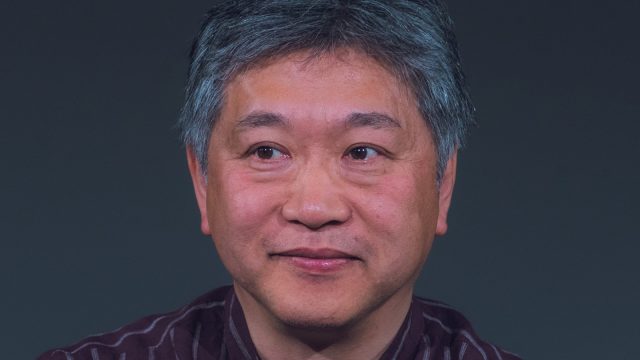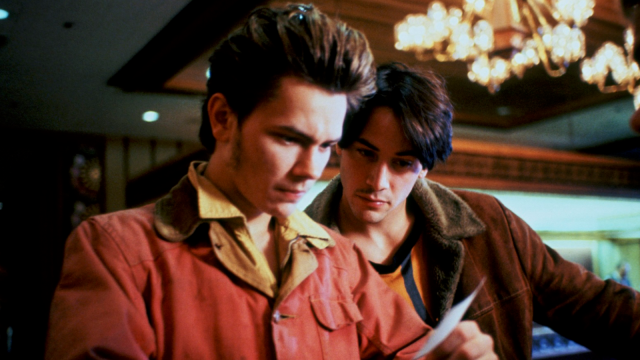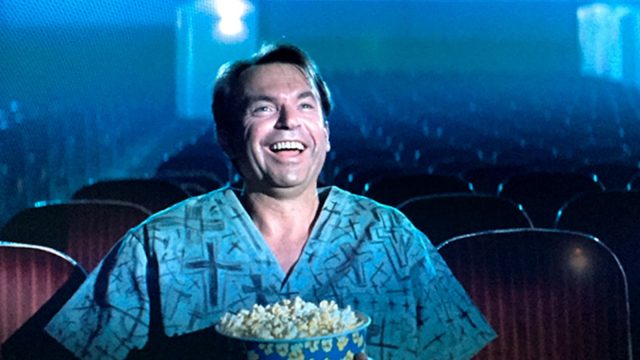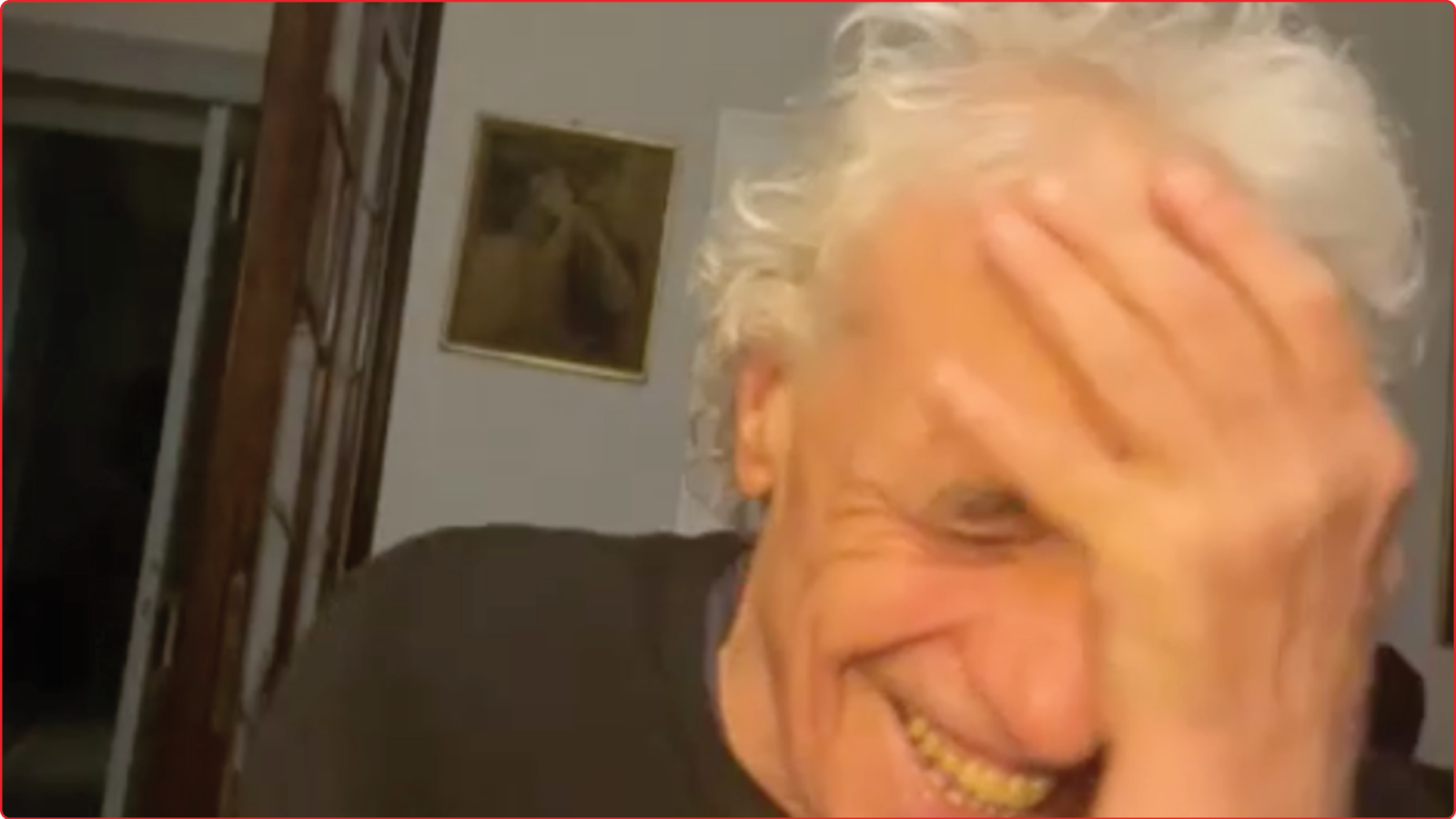
Interview
Abel Ferrara
An interview with Abel Ferrara.
Share:
Ferrara, Zooming in from Rome.
THEY SAY YOU SHOULD NEVER meet your heroes, but I’d say otherwise. In 2007, I quit my job at the video store to work on a documentary about the Chelsea Hotel directed by the legendary and infamous Abel Ferrara. The story goes that Abel was interviewed as a subject for the project initially, but mid-interview declared that he was the director now. Amazingly, everyone seemed on board, and that was that. He’d been living in Italy for a few years, was in town to present Go Go Tales at the New York Film Festival, and looking to extend his stay. The producers booked him a room in the Chelsea, and all of a sudden he was living here again and making a new movie. At the time, I had little-to-no experience working on feature film sets, and to say I was thrown into the eye of the tornado would be a gross understatement. I was in my twenties and he was in his fifties, yet I’d never known anyone who worked as hard, partied as hard, or had as many ideas (that were actually seen through to completion) as this guy. It was a 24/7 job, running around the hotel at all hours meeting with every type of weirdo, and I loved it.
After Chelsea on the Rocks premiered at Cannes in 2008, Abel stayed on in New York, moving downtown above an Italian restaurant in Little Italy, and I was upgraded from his assistant to producer. We had a tiny office with a Mac Pro tower that we got free from the Apple store, a La-Z-Boy, and a big screen TV that played only sports (it was the feed to the bar downstairs). From that space we worked on a slew of feature films, shorts, web series, and off-the-wall obscurities, including a documentary about the Feast of San Gennaro, Mulberry St. (2010). I learned way more in this ultra chaotic and highly productive environment than I did in the entirety of my time at NYU, and in the midst of it all somehow made my first feature (which Abel generously executive produced), 2011’s Happy Life. Around 2014, he moved back to Italy, got sober, and started a new chapter in his life and career. I’ve been fortunate to still work with him off and on in the years since. Whenever he comes to town, whether to shoot a documentary on a local arthouse theater, as with The Projectionist (2019); to be celebrated with a complete retrospective in the elite halls of MoMA; or to throw his own endearingly ramshackle festival of his own films, his collaborators’ films, and his fave cult classics, as he did in 2021, you know you’re in for something personal, all-consuming, and potentially explosive. And that at some point he will likely play a Dylan-esque cover of Schoolly D’s “Just Another Killer.”
It goes without saying that Abel’s most iconic films King of New York (1990) and Bad Lieutenant (1992) are absolute canon, and that Christopher Walken’s and Harvey Keitel’s respective performances in them are unrivaled. But what truly impresses, in a career with over 30 features to his credit, is the sheer volume of low-key classics Abel’s amassed. He’s been going full force, pedal to the metal, since the ’70s, and openly mocks the concept of ever slowing down.
I had the pleasure of Zooming with him, upon his return from Venice where he’d just premiered his latest film Padre Pio (2022) starring Shia LaBeouf. Unsurprisingly, there was a lot to catch up on.
MICHAEL M. BILANDIC: Okay, what’s up? We’re recording.
ABEL FERRARA: What’s happening? Yeah, I was just doing an interview with Béatrice Dalle. You know that chick, the French actress?
MB: Of course. She’s in my favorite film of yours, The Blackout (1997).
AF: Yeah, right. Okay, that crazy chick. They’re here doing a thing on Pasolini, so we did this interview.
MB: She’s making a movie about Pasolini?
AF: Yeah, she’s searching all over. You know, she has this little French crew. They went through the whole deal—where he was born, and where he was this…. I just talked some crazy shit to her for five minutes.
MB: Where are you right now?
AF: I’m in Rome.
MB: You in your apartment?
AF: Yeah. Yeah. [Flips camera phone around to tour apartment.] You’ve never been?
MB: I’ve never been there.
AF: It’s like Tommaso (2019)! This is like Tommaso. Can you see it or is it too dark?
MB: It’s a funny thing. I feel like I have been to your place, though, because you’ve shot it so much. I love how you’ve integrated your apartments and neighborhoods throughout the years into your work; from The Driller Killer (1979) to Chelsea on the Rocks (2008) to Mulberry St. (2010) to Piazza Vittorio (2017). And, of course, Tommaso. If you were to shoot a movie in your apartment today, what would it be? What’s the vibe like over there right now?
AF: [Opens another mineral water bottle.] Yeah, I played it out. I mean, how many Tommaso’s can we make? Hello, my life is interesting [self-mocking voice]. You know, the relationship with Cristina [Chiriac] is interesting but I don’t know if we should do another movie about it.
MB: You were talking about Tommaso 2 for a period.
AF: Yeah, now we’re on to 3. We’re gonna skip 2.
MB: I was just walking through San Gennaro earlier while they were setting up, and having these flashbacks to Mulberry St.
AF: Well, what’s the Feast like now?
MB: I saw Joey Reynolds, the radio host, in an apron selling cheesecakes. I saw the “Cannoli King,” Baby John. A lot of familiar faces. The big drama this year is they’re not allowed to sell anything Godfather-related.
AF: Is someone suing them for that? Well, it was only that one maniac who like co-opted the whole thing, selling tapes, remember that maniac?
MB: Yeah. They’re saying it’s a bad influence on the culture, I think.
AF: Is Coppola suing them or is it like an anti-mob thing?
MB: It’s anti-mob. They don’t want that connotation.
AF: That’s really fucking crazy.
MB: But then you still have, you know, meatball-eating contests and cannoli-eating contests, so it’s clear—
AF: Well, cannoli-eating contests and Godfather are two different things. I thought they didn’t make no more cannolis?! Remember when they came in and busted everybody because it was like the trans fat, remember that night? They came down, cops and everybody, the news station, and they shut down all the cannoli stands because of trans fat in the cannoli!
MB: That was Bloomberg’s big agenda.
AF: Yeah, it was like trans fat; no French fries. Is that gone, now? There’s no trans fat in Manhattan? Like the Pooper Scooper Law; one day you step in it, then the next—here there is no Pooper Scooper Law, so it’s like New York 20 years ago, dogshit all over the place. It’s disgusting sometimes.
“remember that night? They came down, cops and everybody, the news station, and they shut down all the cannoli stands because of trans fat in the cannoli!”
MB: There’s more dogs here than ever, so there’s no shortage of dogshit. Everyone got so depressed during COVID they all got pets. Anyway, I was just reading about this new movie about Hunter Biden, My Son Hunter (2022). It’s part political propaganda, part exploitation, but it’s mostly him getting fucked up and making shady international deals. My first thought was: I wish Abel directed this. Then I looked closer and saw it was directed by Robert Davi.
AF: Are you kidding? You remember that night that Davi was there, and Frankie Cee got all pissed off at that dude who was, like, debating and arguing. Oh, man, that was a freak show.
MB: Yeah, and we shot something with him. We filmed the premiere of his movie The Dukes (2007). It starred Peter Bogdanovich and was about an aging doo-wop group who decide to rob a dentist’s office for the gold fillings, or something like that.
AF: You still got that footage? That was crazy. Remember Frankie fucking rented that bus, and we all went, that was the psycho fucking opening of all time. Man, find that shit, that was awesome.
MB: Ben Gazzara was there. Sylvia Miles…
AF: It was every fucking wacko like that, and they’re all dressed up as if they were at the fucking Cannes Film Festival. Meanwhile it was just some dopey fucking thing.
MB: Speaking of film festivals, you just got back from Venice. How was that?
AF: Yeah. We were like the fucking losers circle, you know? Nobody wanted the film in any of the competition sides. Not Cannes, or anyone. So we’re in this thing, it’s called Authors’ Nights [Giornate degli Autori; in English, Venice Days]. It’s like getting into Venice through the back end, you know?
MB: It got a lot of attention.
AF: Yeah, Shia is like, you know, he’s a movie star, man. He was cool, he came. The film was divided. The English-speaking people and the American critics, they trashed this fucking film. I mean, we got some fucked up… [Laughs]. Well you got to see it.
MB: When First Reformed (2017) came out, Schrader was talking about how he went on a tour of all these churches across the country with it. It’s incredible how there’s a whole world of Christian film production and exhibition out there, it’s like a whole other ecosystem.
AF: You know, the funny thing is I’m a Buddhist, but this fucking film is as Catholic as can be. There’s nothing even close to it. The monks are fucking besides themselves, they love it, you know? The first time we showed it to these guys, I thought we’re going to show it to two or three of the main Capuchin monks from where Padre Pio came from. We get in the theatre—this was like, it wasn’t the final cut; I just wanted to show it to these guys and get a vibe, right? Clearing the theatre, I turn around and there’s like 20 of them. I’m with the writer [Maurizio] Braucci, and I’m thinking, “Man, we could get burnt at the stake here, these guys might…” [Laughs.] You know, you don’t know. No one had seen the film. I’m thinking, fuck. These dudes, it’s like a gang of them in the thing. They fucking loved it, man. I mean, really, really heavy, heavy players. So even that interview, that long interview Shia does on YouTube—did you see that? And that dude [Bishop Barron] has like a fucking audience of 35 million people, you know? So anyway, we’re trying to get it to the Pope. Because it’s like, there’s the monks, and then there’s the real Vatican with the priests.
MB: That’s wilder than any film festival, getting into the Vatican.
AF: Yeah, yeah, get it to that crew because this film has a whole different audience.
MB: Do you know about this whole Trad Cath thing in New York? In the last couple years it’s become a very fashionable to be an orthodox Catholic again. I met a girl the other day, and she said, “I’m Catholic, but I don’t like to talk about it because I don’t want people to think that I’m being trendy.”
AF: Oh, wow. That’s crazy. Well Shia is right there, bro, because he’s out front.
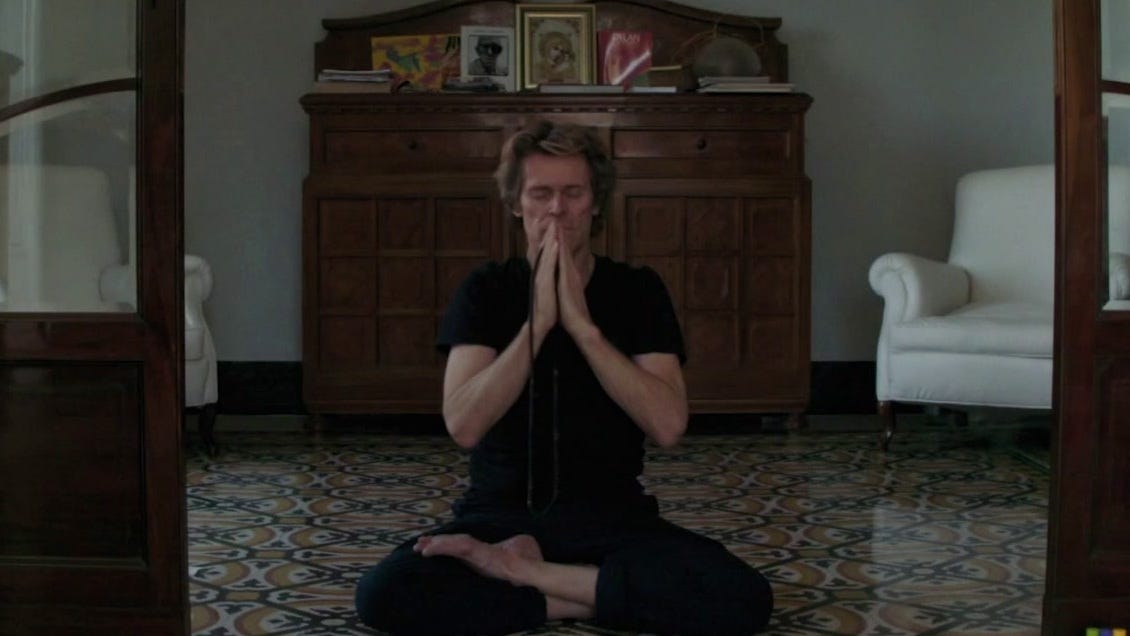
Willem Dafoe (in Ferrara’s apartment) in Tommaso (2019)
MB: I gotta ask you about this. So I texted Sean [Price Williams] a couple of weeks ago. I was like, “What are you up to? You want to grab a beer?” And he’s like, “Oh sorry, I’m in Ukraine with Abel right now.” I almost spat my drink out. I knew you guys were talking about it, but—
AF: We just went. We couldn’t talk about it. What happens is you talk about this shit, and then… You know, I met [Sergei] Losnitza, and then somebody else. It turns out the guys running that country are all film producers, you know? Zelensky and his guys, they’re all film people. And they all knew me. So when I call, I says, “What do you think?” They’re like “Oh, man, you gotta come,” and the next minute they got us tickets on this crazy—I mean, it wasn’t so simple but they got us to Kyiv and it was cool. You know, it was like a 20-hour train trip from Warsaw. It was an adventure. But it was crazy, man. It was like Mulberry St. We just walked around and just fucking filmed whoever we bumped into. It wasn’t like a big…
MB: Right, you don’t overthink it, you just go in.
AF: Yeah, we just went there. You know what I mean? I was scared, but when you got there, you know, the war isn’t in Kyiv—there is a war though. When you go places where the Russians were… it’s a nightmare, man, because these guys got weapons, they just blow the whole fucking block up. They was saying, “Do you want to have a bulletproof vest and a helmet?” You look at a building and the whole building’s dropped. Like, you’re going to wear a fucking bulletproof vest? It’s a nightmare, it’s a real world war. It’s like a real fucking catastrophe.
MB: So bleak.
AF: Anyway, so we started shooting. But it’s going to be a long haul.
MB: On a brighter note, I thought of you the other day. The Jets game on Sunday…
AF: The Sunday game, man. I’m watching, because I get the Europass, right? And I’m watching and they’re terrible, but in a heartbreaking, nightmarish way, right? And I just shut the computer down. They’re down 13 points with two minutes to go. Their chances of winning, they have this statistic, was .001 percent. Then in the middle of the night I look at the news, and it goes “Jets win,” and I thought it was like a gag, you know? If it was normal television in the old days, where there’s no replay, I would have missed the greatest comeback almost in the history of football. It was an insane game.
MB: When Fassbinder was making Querelle (1982), the whole shoot was structured around Dallas, the soap opera. Production had to stop so that he could watch it. I kept thinking about that when we were working, with these Jets games. It felt like the whole week revolved around that and set the tone on set.
AF: Back then, they almost won. They were like a game from the Super Bowl. But that was like 10 years ago. Mulberry St. was, what, 10 years ago? More? That’s a good movie.
But now, I’m writing a book. My autobiography. Did I tell you this? I got a fucking deal from the Italian publisher who published Oliver Stone’s book and Tarantino’s, right? This chick’s like this punked-out cool chick, but she’s got a real ’70s sensibility. She’s a big fan.
MB: How’s it coming?
AF: It’s painful. What happened was, this chick approached and I’m acting like, “Dude, I could write a fucking book, blah blah blah,” and end up negotiating a fucking cool deal, taking the money, and I ain’t giving the money back. So now I’m stuck writing it. That’s real writing, you got to write 400 pages.
MB: Did you see this Woody Allen thing the other day, where they reported that he was retiring. And then he sort of backtracked, and said, “Oh that was a misquote…” But he was talking about not wanting to go through the process of making movies anymore, because they mostly go straight to streaming, and he was implying that he wanted to work more on writing and other things. Do you ever feel like that? Has there ever been a point in your career where you said, “I’m totally done?”
AF: Who, me? I’m really just warming up, man. I mean, how old is Woody, anyways? His book wasn’t bad. Did you read his book?
MB: I didn’t. I love the Oliver Stone book though,
AF: It was pretty good. You know? My book is called Scene. It’s about other people. You know, the crazy people I know. I keep trying to keep myself to the minimum. Believe me, I got some list of lunatics. There’s no shortage of material, it’s just a matter of sitting down and writing every day. But I’m doing it.
But you don’t retire. Remember when we went to see [Christopher] Walken? In that interview he says, “In this business, you don’t retire, they retire you!” That was it. You don’t retire from this business, they carry you out on your shield. It’s like being a pope. You don’t retire from being a director. It’s ridiculous. You work till you fucking drop dead.
MB: Amen, couldn’t agree more.
Share:


